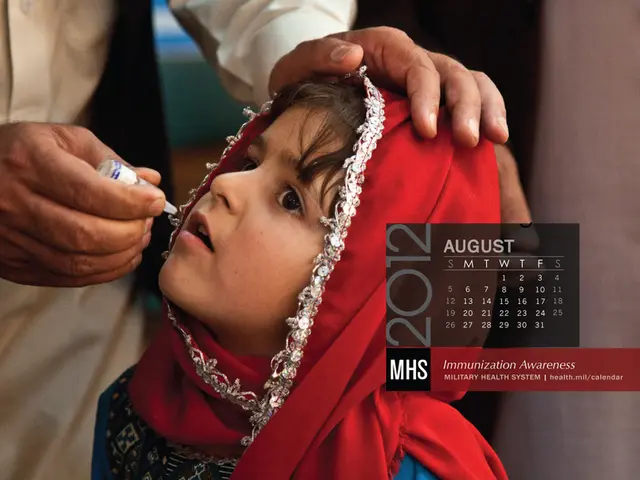Women in Africa: Balancing Tradition, Gaining Power, and Instigating Change
The diverse and vibrant continent of Africa, renowned for its rich cultural history and dynamic society, has a complex and evolving narrative when it comes to the roles of women. From ancient customs to modern-day movements, the tale of African women traverses stories of resilience, strength, and transformation. This piece delves into various aspects of women's lives in Africa, highlighting how tradition, empowerment, and change have sculpted their journey.
Rooted in Tradition
African societies, deeply steeped in customs and traditions, have long defined women's roles and responsibilities. These roles have varied extensively across different cultures and regions. In many traditional societies, women were revered as the backbone of families and communities. Their roles often extended to managing households, raising children, and contributing to agriculture. Interestingly, in some ancient cultures, women held significant positions in the social and political hierarchy. For example, in ancient Egypt, women could own property, conduct business, and even took on the mantle of pharaohs.
Matrilineal Societies
In several African cultures, matrilineal systems were prevalent, with lineage and inheritance traced through the mother's line. This setup empowered women, providing them with authority in community affairs and decision-making processes. The Ashanti of Ghana and the Bemba of Zambia are examples of societies where matrilineality played a pivotal role.
Preservation through Craft
Women have often served as guardians of traditional crafts and skills, preserving cultural heritage. Skills like pottery, weaving, and beadwork aren't just artistic expressions but also serve as means of economic empowerment. These crafts are often passed down through generations, carrying traditional values and stories.
A New Wind Blows
The 20th and 21st centuries have brought significant changes to the role of women in African societies. Colonialism, modernization, and globalization have all contributed to reshaping these roles.
Education and Employment
Education has emerged as a crucial driver of change for African women. With increased access to education, women have been able to venture into career fields and actively participate in the economic and political spheres. Countries like Rwanda have made spectacular progress, boasting women in significant government and business positions.
Leadership Among Women
African women have been breaking barriers in leadership roles. Notable figures like Ellen Johnson Sirleaf, the first elected female head of state in Africa, and Ngozi Okonjo-Iweala, the first woman to lead the World Trade Organization, symbolize the changing face of leadership on the continent. Their success stories have inspired a new generation of aspiring African women leaders.
Empowerment Movements
The fight for gender equality and women's rights has sparked numerous empowerment movements across Africa. These movements encompass both grassroots initiatives and national campaigns, focusing on issues like education, health, and political representation.
Grassroots Initiatives
Local initiatives usually prioritize empowering women through education, skills training, and microfinance. Examples include the Maasai Women Development Organization in Tanzania, which provides education and economic opportunities to Maasai women, transforming their roles in society.
National Campaigns and Policies
Some African countries have implemented policies to advance gender equality and empower women. For instance, Rwanda's constitution mandates a minimum of 30% representation of women in decision-making bodies, a standard that the country has surpassed in practice. Such policies have significantly boosted women's participation in governance and public life.
Overcoming Barriers and the Path Ahead
Despite the progress made, African women still confront numerous challenges. Issues like gender-based violence, limited access to healthcare, and economic disparities continue to present obstacles. The COVID-19 pandemic has exacerbated these challenges, highlighting their urgency.
Conquering Challenges
Addressing these difficulties demands a multifaceted approach that encompasses strengthening legal frameworks, increasing economic opportunities, and changing societal attitudes. Education and awareness-raising play critical roles in shifting perceptions and breaking down gender stereotypes.
A Role for Men
Men play a pivotal role in the journey towards gender equality. Engaging men and boys in discussions about gender roles and encouraging their involvement in empowerment initiatives is essential, fostering a culture of respect and equality.
The story of African women is one of enduring strength and dynamic change. From preserving cultural traditions to breaking new ground in various fields, their journey embodies resilience and hope. As African societies continue to evolve, the role of women will undoubtedly shape their future. Celebrating and supporting the empowerment of women is more than a matter of social justice; it serves as the foundation for the development and prosperity of the continent.
A Mosaic of Cultural Examples
The African continent is a rich tapestry of cultures, each possessing a unique viewpoint on the role of women. Let us investigate some specific examples to better understand this diversity.
The Ndebele of South Africa
The Ndebele women of South Africa are renowned for their vibrant art and architecture, a tradition passed down from one generation to the next. These women have preserved their cultural identity through their intricate beadwork and colorful wall paintings, which have become symbols of resilience and cultural pride.
The Women of the Sahara
Women in the nomadic societies of the Sahara, such as the Tuareg, enjoy a considerable degree of freedom and respect. They actively participate in decision-making processes and possess rights to property and inheritance. Their traditional blue robes and silver jewelry are more than fashion statements; they symbolize their deep-rooted cultural heritage.
The Amazons of Dahomey
The Dahomey Amazons, an all-female military regiment from the Kingdom of Dahomey (present-day Benin), were acclaimed for their bravery and skill. They played a crucial role in the kingdom's military campaigns in the 19th century, challenging traditional gender roles and showcasing women's might.
Overcoming Challenges
African women have persistently faced and continue to tackle various challenges, including societal constraints and economic barriers.
Education and Literacy
One of the primary challenges is access to education. Although there has been substantial progress in increasing girls' enrollment in schools, issues such as early marriage and poverty persist, hindering educational attainment for many girls.
Health and Wellbeing
Women's health, particularly maternal health, remains a critical concern. Access to healthcare services is limited in many regions, and cultural practices such as female genital mutilation (FGM) pose significant health risks.
Stories of Inspiring Change
Amid these challenges, there are countless tales of African women driving change and making remarkable contributions in various fields.
Dr. Wangari Maathai
Dr. Wangari Maathai, the first African woman to receive the Nobel Peace Prize, was an environmental and political activist from Kenya. She founded the Green Belt Movement, which has planted over 51 million trees in Kenya, empowering rural women and combating deforestation.
Chimamanda Ngozi Adichie
Chimamanda Ngozi Adichie, a Nigerian author and feminist, has heavily influenced contemporary discussions on feminism and gender equality. Her works challenge stereotypes and advocate for a more inclusive understanding of feminism, resonating with women globally.
The Path Forward
The journey towards gender equality and the empowerment of African women continues. The path ahead involves concerted efforts from different sectors of society.
Policy and Legal Reforms
Governments must persist in implementing and upholding laws promoting gender equality and safeguarding women's rights. Legal reforms, particularly those addressing issues like marital rape, domestic violence, and property rights, are crucial.
Economic Empowerment
Creating economic opportunities for women through entrepreneurship programs, access to credit, and job training can significantly elevate their status in society. Economic independence is both a means of empowerment and a tool for social change.
Cultural Shifts
Shifting deep-seated cultural norms and practices that perpetuate gender inequality is a gradual but essential process. It involves educating communities, promoting gender-sensitive practices, and celebrating women's achievements.
Conclusion
The narrative of African women is multifaceted, filled with stories of diversity, strength, and resilience. From the golden sands of the Sahara to the bustling cities of Rwanda, African women are redefining their roles and contributing to their continent's growth and development. Their journey is not without challenges, but the progress made thus far offers hope and inspiration. As African women continue to shatter barriers and challenge norms, their tale remains an integral part of Africa's larger narrative of tradition, empowerment, and change.
- In many traditional African societies, women were revered as the backbone of families and communities, managing households, raising children, and contributing to agriculture.
- In some ancient African cultures, women held significant positions in the social and political hierarchy, such as owning property, conducting business, and even acting as pharaohs.
- Matrilineal systems, where lineage and inheritance are traced through the mother's line, empowered women by giving them authority in community affairs and decision-making processes.
- The 20th and 21st centuries have brought significant changes to the role of women in African societies, with education and employment opportunities playing a crucial role in transforming these roles.
- African women have been breaking barriers in leadership roles, with notable figures like Ellen Johnson Sirleaf and Ngozi Okonjo-Iweala symbolizing the changing face of leadership on the continent.








